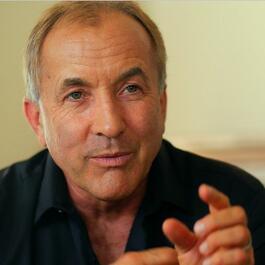
Intelligent Design the Future
The ID The Future (IDTF) podcast carries on Discovery Institute's mission of exploring the issues central to evolution and intelligent design. IDTF is a short podcast providing you with the most current news and views on evolution and ID. IDTF delivers brief interviews with key scientists and scholars developing the theory of ID, as well as insightful commentary from Discovery Institute senior fellows and staff on the scientific, educational and legal aspects of the debate. Episode notes and archives available at idthefuture.com.
Show episodes
On this episode of ID the Future from the vault, biochemist and medical doctor Michael Denton continues his conversation with host Sarah Chaffee about his book Children of Light: The Astonishing Properties of Sunlight That Make Life Possible, part of his Privileged Species book series that also includes The Miracle of
How does AI stack up when it comes to accurately representing the theory of intelligent design? Today, host Andrew McDiarmid speaks with mathematician and philosopher Dr. William Dembski about the reliability and accuracy of large language models (LLMs) like ChatGPT and Bard, particularly concerning intelligent design.
How accurately do AI models like ChatGPT, Grok, and Bard portray the theory of intelligent design? Can large language models rise above the biases of sources like Wikipedia to help level the playing field for intelligent design? Today, host Andrew McDiarmid begins a conversation with mathematician and philosopher Dr. W
On this episode of ID the Future from the archive, biochemist and medical doctor Michael Denton explores a “miraculous convergence of properties” for life. The topic is Denton's book Children of Light: The Astonishing Properties of Sunlight That Make Us Possible, part of his Privileged Species book series that also inc
Does intelligent design have a better answer for the origin of the universe and the origin of life than the standard neo-Darwinian explanation? Today, we’ll enjoy the second half of a conversation about the scientific theory of intelligent design with geologist and attorney Dr. Casey Luskin and his wife, chemistry teac
Is intelligent design a viable scientific theory? Why do some still insist on calling it pseudoscience? Maybe you’re wondering these things yourself, or have a friend, family member, or co-worker who has these types of questions. On this ID The Future, scientist and attorney Dr. Casey Luskin and his wife, chemistry tea
